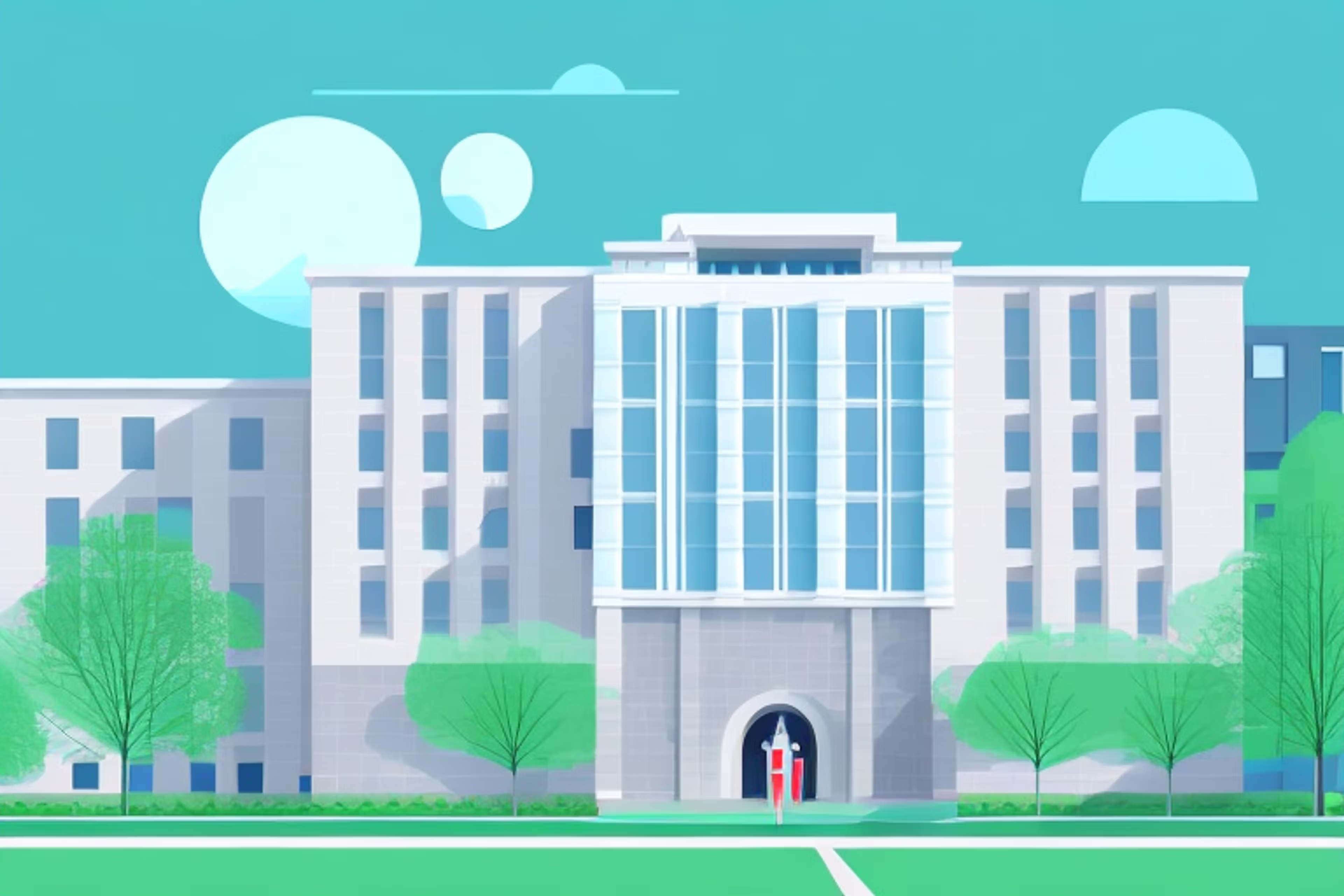Lowest GPA for Med School: What You Need to Know Before Applying
Are you worried about your low GPA affecting your chances of getting into medical school? Our article "Lowest GPA for Med School: What You Need to Know Before Applying" provides valuable insights and tips to help you navigate the application process and increase your chances of acceptance.
Posted May 19, 2023

Table of Contents
Aspiring to become a doctor is both a noble and challenging path to take. It requires a lot of dedication, hard work, and, most importantly, an excellent academic record. But what if you have a low GPA? Does that mean you can't pursue your dream of becoming a doctor? This article will help you understand what is considered a low GPA for medical school, whether you can still get in with a low GPA, and the strategies you can use to compensate for a lower GPA in your application.
What is Considered a Low GPA for Medical School?
GPA (Grade Point Average) is a significant factor that medical schools consider when evaluating applicants. It is an average of all the grades you received throughout your undergraduate career. A low GPA can significantly impact your chances of getting into medical school. So, what is considered a low GPA for medical school? The answer varies depending on the medical school you want to apply to. Generally, a GPA lower than 3.0 is considered low, while a GPA lower than 2.5 will severely limit your options. However, some medical schools may consider applicants who have a GPA higher than 3.0 but may require those students to take additional courses, retake the MCAT or demonstrate that their academic performance was affected by extenuating circumstances.
It is important to note that while GPA is a significant factor, it is not the only factor that medical schools consider when evaluating applicants. Other factors such as MCAT scores, extracurricular activities, research experience, and personal statements are also taken into consideration. Therefore, if you have a low GPA, it is still possible to get into medical school by excelling in other areas and demonstrating your passion and dedication to the field of medicine.
Can I Still Get into Medical School with a Low GPA?
Yes, you can still get into medical school with a low GPA. However, the process will be more challenging, and your options will be limited. Having a low GPA does not mean you should give up on your dream of becoming a doctor. There are a few things you can do to improve your chances. Some students opt to take post-baccalaureate pre-medical programs to help improve their GPA, while others take additional science courses or excel in the MCAT. Additionally, demonstrating a track record of significant involvement in extracurricular activities and volunteer work can also improve your chances of getting into medical school with a low GPA.
Another option for students with a low GPA is to consider applying to medical schools that have a more holistic approach to admissions. These schools may place less emphasis on GPA and more on other factors such as personal statements, letters of recommendation, and interviews. It is important to research and identify these schools and tailor your application accordingly.
It is also important to address the reasons for your low GPA in your application. If there were extenuating circumstances such as illness or family issues that affected your academic performance, be sure to explain them in your personal statement or in a separate addendum. Admissions committees may be more understanding if they have a clear understanding of the circumstances surrounding your GPA.
How Admissions Committees Evaluate Applicants with Low GPAs
Medical school admissions committees consider several factors when evaluating applicants with low GPAs. First, they will look at your course progression. They will want to see that you improved your grades over time or that you demonstrated rigor by taking challenging courses. They will also consider external factors that may have affected your GPA, such as personal or familial circumstances. Lastly, admissions committees will look at your performance in science courses specifically, as this will give them an idea of your ability to succeed in medical school.
Strategies for Improving Your Chances of Getting into Medical School with a Low GPA
Improving your chances of getting into medical school with a low GPA requires significant effort and planning. First, consider retaking some undergraduate courses to improve grades. Additionally, you can consider taking post-baccalaureate pre-medical programs or graduate-level courses to demonstrate your academic potential. A strong MCAT score can also help compensate for a low GPA. Additionally, engaging in meaningful extracurricular activities such as volunteering in healthcare settings, shadowing physicians, or participating in research can demonstrate your commitment to the field of medicine.
The Importance of Extracurricular Activities and Volunteer Work in the Application Process
Extracurricular activities and volunteer work are essential components of the medical school application process. Participating in activities outside of the classroom demonstrates your well-roundedness and commitment to the field of medicine. Medical schools want to see applicants who have taken the time to pursue their passions and who have shown leadership qualities. Additionally, volunteer work in healthcare settings demonstrates your ability to work in a clinical setting and interact with patients and other healthcare professionals. Both extracurricular activities and volunteer work can help compensate for a lower GPA.
Tips for Crafting a Strong Personal Statement to Compensate for a Low GPA
Your personal statement is an essential aspect of your medical school application. It is your opportunity to demonstrate who you are beyond your grades and test scores. If you have a low GPA, your personal statement can be an excellent opportunity to explain why it's not reflective of your academic potential. But be careful not to make excuses. Instead, focus on highlighting what you learned from those experiences and how they helped you grow. Explain your motivations for pursuing a career in medicine and how your experiences have prepared you for that career. Finally, show how you're different from other applicants and emphasize why you're a good fit for that particular medical school.
How to Choose the Right Medical Schools to Apply to with a Low GPA
When you have a low GPA, it's essential to research which medical schools may still consider your application. Start by reviewing medical schools' admissions requirements and their average GPA of accepted students. Several schools have lower average GPA requirements, and some schools may have a more holistic approach to evaluating candidates that includes interviews or secondary essays. Targeting your application towards these schools increases your chances of acceptance while also reducing the risk of wasted time and resources on applications to schools that are unlikely to accept applicants with lower GPAs. Finally, consider the location, program offerings, and reputation of the school as you consider which schools to apply to.
Alternative Paths to Becoming a Doctor: Exploring Other Healthcare Careers
If you're passionate about pursuing a career in healthcare but have a low GPA, there are still other options. Consider pursuing other healthcare careers such as physician assistant or nurse practitioner. These positions allow you to work in clinical settings, diagnose and treat patients, and work in collaboration with physicians while requiring fewer years of schooling and prerequisites. These positions can serve not only as a stepping stone towards a future career as a doctor but can also be fulfilling professions in their own right.
Common Mistakes to Avoid When Applying to Medical School with a Low GPA
When applying to medical school with a low GPA, there are common mistakes that applicants should avoid. The first mistake is making excuses for your grades instead of taking ownership of the reasoning behind them. Additionally, lacking meaningful extracurricular activities or volunteer work can hurt your chances. Finally, having a "scatter-shot" approach and applying to too many schools can reduce your chances of acceptance as admissions committees may see you as not being serious about any particular school.
Real-Life Success Stories of Students Who Overcame a Low GPA and Got into Med School
While having a low GPA can seem discouraging, there are stories of students who were accepted into medical school despite low grades. Some students take additional coursework or post-baccalaureate programs to improve their grades, while others use their extracurricular activities and volunteer work as evidence of their passion and commitment to the field of medicine. Hearing from other students who have gone through similar struggles and succeeded in their goals can be inspiring and motivating.
The Impact of COVID-19 on Medical School Admissions, Including Applicants with Lower GPAs
COVID-19 has significantly impacted the application process for medical school, including applicants with lower GPAs. Many medical schools have changed their admissions criteria and application processes in response to the pandemic, including waiving MCAT requirements and modifying their interview process. However, this should not deter applicants who are still pursuing their dream of becoming a doctor. While the application process may look different, the need for healthcare professionals remains high.
Conclusion: Is Pursuing Medical School Worth It Despite Having a Low GPA?
Having a low GPA does not mean that you cannot pursue a career in medicine. It's important to understand what is considered a low GPA and how admissions committees evaluate applicants with a lower GPA. Strategies for improving your chances of acceptance include demonstrating academic improvement over time or taking post-baccalaureate programs, excelling in the MCAT, engaging in meaningful extracurricular activities and volunteer work, and choosing the right medical schools to apply to. While pursuing a career in medicine requires a significant time and financial investment, it can also be a rewarding and fulfilling profession that makes a positive impact on the world.










